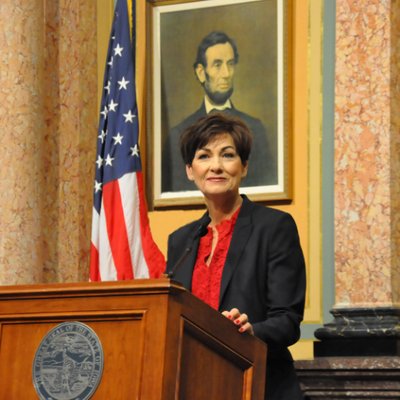The Iowa Supreme Court will determine whether a law designed to deny sex education grants to Planned Parenthood violates the Iowa Constitution’s equal protection guarantee. The state of Iowa filed a notice on June 1 that it will appeal last month’s Polk County District Court ruling, which found the law unconstitutional.
Republicans inserted the challenged language into a budget bill on the penultimate day of the 2019 legislative session, instructing state agencies not to award federal sex education grants to
any applicant entity that performs abortions, promotes abortions, maintains or operates a facility where abortions are performed or promoted, contracts or subcontracts with an entity that performs or promotes abortions, becomes or continues to be an affiliate of any entity that performs or promotes abortions, or regularly makes referrals to an entity that provides or promotes abortions or maintains or operates a facility where abortions are performed.
Planned Parenthood of the Heartland filed suit, charging that the provision violated the state constitution’s provisions on free speech, free association, due process, equal protection, and bills of attainder.
District Court Judge Paul Scott did not rule on four of the claims after finding in favor of plaintiffs on the equal protection claim. His ruling, which Bleeding Heartland published and analyzed here, centered on an exception GOP lawmakers wrote into the statute to protect UnityPoint’s eligibility for the sex ed grants.
Judge Scott determined, “The carved out exception for the ‘nonprofit healthcare delivery system’ [UnityPoint] facilities undermines any rationale the State produces of not wanting to be affiliated with or provide funds to organizations that partake in any abortion-related activity.”
Governor Kim Reynolds chose not to press her luck early last year after a different Polk County judge struck down the near-total abortion ban she had signed in 2018. The state declined to appeal that case to the Iowa Supreme Court.
Since then, Reynolds has appointed two more Supreme Court justices. She has named four of the seven who will consider the state’s appeal in the current Planned Parenthood case: Chief Justice Susan Christensen and Justices Christopher McDonald, Dana Oxley, and Matthew McDermott. Her predecessor Governor Terry Branstad appointed Justices Edward Mansfield and Thomas Waterman, while Governor Tom Vilsack appointed Justice Brent Appel.
It’s important to note that Republican-appointed judges don’t always rule the way GOP governors would prefer. The jurist who struck down this law was a Branstad appointee himself.
Mansfield and Waterman joined the unanimous 2015 Supreme Court ruling that struck down a state ban on using telemedicine for abortions at Planned Parenthood clinics. A key point in that decision was that the state Board of Medicine prohibited telemedicine only for the procedure Planned Parenthood provided, while encouraging the practice in many other medical contexts. The high court found, “It is difficult to avoid the conclusion that the Board’s medical concerns about telemedicine are selectively limited to abortion.”
In this case, the state cannot even claim to consistently oppose sex education grants for abortion providers, since the law specifically allows such money to be awarded to “a nonpublic entity that is a distinct location of a nonprofit health care delivery system,” even if other facilities in that system provide abortion services.
Planned Parenthood of the North Central States and the ACLU of Iowa (which is representing the plaintiffs) said in a joint written statement on June 2,
It’s disappointing that the state will continue to try to block our ability to provide state-approved sex education curriculum that young Iowans need. We are appreciative of the district court’s strong ruling in our favor, which will be the subject of this appeal. As the district court recognized, the state violated the Iowa Constitution’s promise of equal protection by attempting to block these grants. Importantly, during this appeal, we will be able to continue to provide these vital programs to Iowans in need of them across our state.
The suit names Reynolds and the directors of the Iowa Department of Public Health and Iowa Department of Human Services as defendants, since those agencies administer the grants in question. Communications staff for the governor and the health and human service agencies did not respond to Bleeding Heartland’s request for comment. I will update this post as needed.

